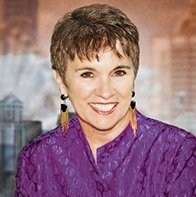EP21 Speech 18 - Complexities in Working with the Young Adult - Claudia Black, PhD
- Average Rating:
- Not yet rated
- Topic Areas:
- Speeches | Addiction | Co-Occurring Disorders | Family Systems
- Categories:
- Evolution of Psychotherapy | Evolution of Psychotherapy 2021 | Pioneers in Couples and Family Therapy
- Faculty:
- Claudia Black, PhD
- Duration:
- 1 hour
- Format:
- Audio Only
- Original Program Date:
- Dec 04, 2021
- License:
- Never Expires.
Description
Syllabus Description: Working with the young adult with addictive disorders most frequently involves addressing the experience of bullying, physical and sexual abuse, emotional abandonment and loss. These dynamics are significant in addressing the more frequent co-occurring disorders of anxiety and depression. This presentation will also offer a framework for treatment strategies.
Learning Objectives
- Identify five critical experiences that fuel mental health and addiction problems of young people
- Describe the interaction of trauma and addiction
- List eight core elements to a healthy treatment process
Credits
Handouts
| Timestamped Transcript (894.9 KB) | 21 Pages | Available after Purchase |
Faculty

Claudia Black, PhD Related Seminars and Products
Claudia Black, Ph.D., is internationally recognized for her pioneering and cutting-edge work with family systems and addictive disorders. Her work with children impacted by drug and alcohol addiction in the late 1970s fueled the advancement of the codependency and developmental trauma fields. Dr. Black’s passion to help young adults overcome obstacles and strengthen families built the foundation of the Claudia Black Young Adult Center. Not only is Dr. Black the clinical architect of this groundbreaking treatment program, she is also actively involved with the treatment team, patients, and their families.
Claudia is the author of It Will Never Happen To Me, Changing Course, My Dad Loves Me, My Dad Has A Disease, Repeat After Me, It's Never Too Late To Have A Happy Childhood, Relapse Toolkit, A Hole in the Sidewalk, Depression Strategies, Straight Talk, The Stamp Game, Family Strategies, Anger Strategies, Deceived: Facing Sexual Betrayal, Lies and Secrets, The Truth Begins With Youand her newest title, Intimate Treason: Healing the Trauma for Partners Confronting Sex Addiction. She has produced seven audio CDs addressing issues of addiction and recovery. They are A Time for Healing, Putting the Past Behind, Triggers, Emotional Baggage, Trauma in the Addicted Family, Imageries and Letting Go Imageries. She also has over 20 DVDs for professionals to use working with families and clients.


